The Ingredients of Happy Memories
How your past can have a bright future with the right ingredients. Inspired by Meik Wiking from his book, The Art of Making Happy Memories.

We often look back on our happy memories in the darkest hours of our lives. And when we relive them, our sweet memories have the power to make us smile and sometimes, also laugh. Happy memories are our crutch in old age, salve when we're in pain, and companion during loneliness. We seldom know that we are making happy memories. In fact, most of us don’t even know we are making them when we are in the moment.
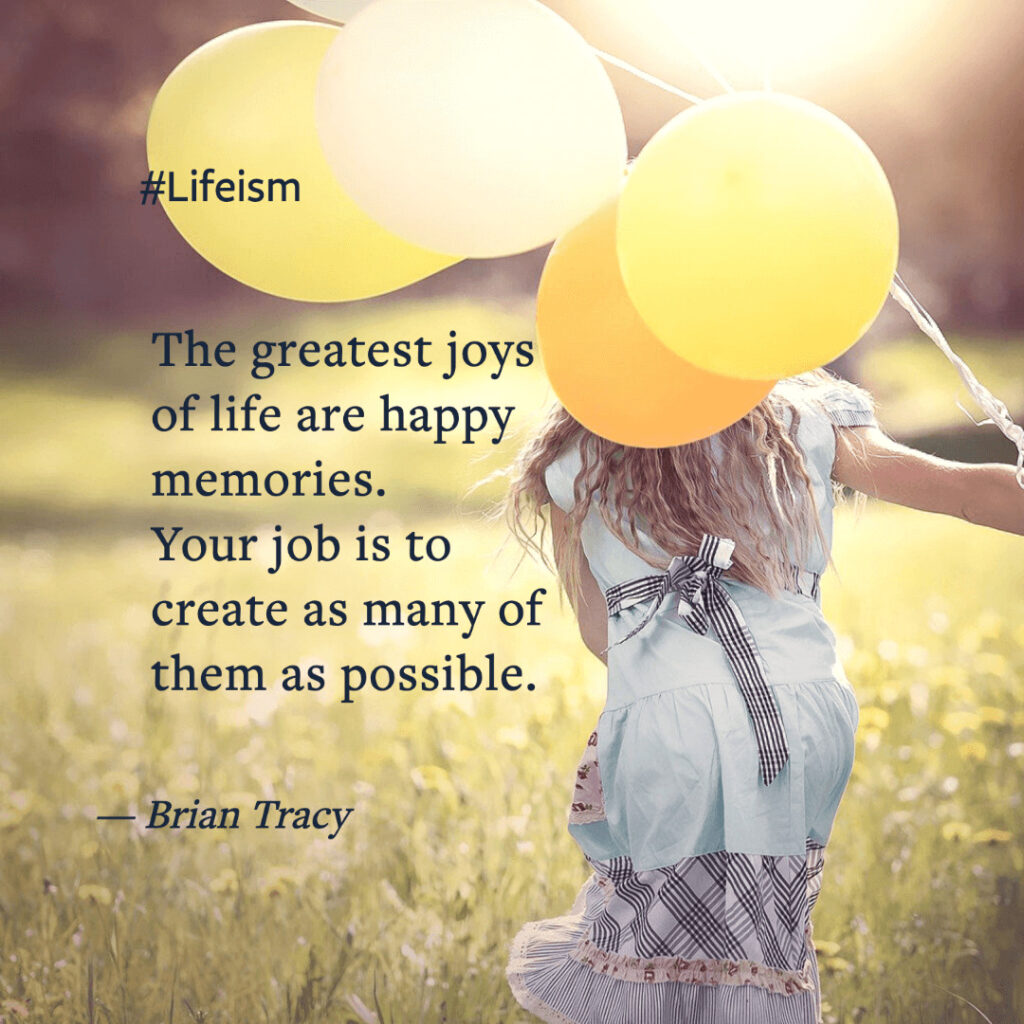
But if happy memories are so important, why don’t we make a sincere effort to create them? Meik Wiking, in his book The Art of Making Happy Memories, does just that. As the CEO of the Happiness Research Institute, he decided to understand happy memories better.
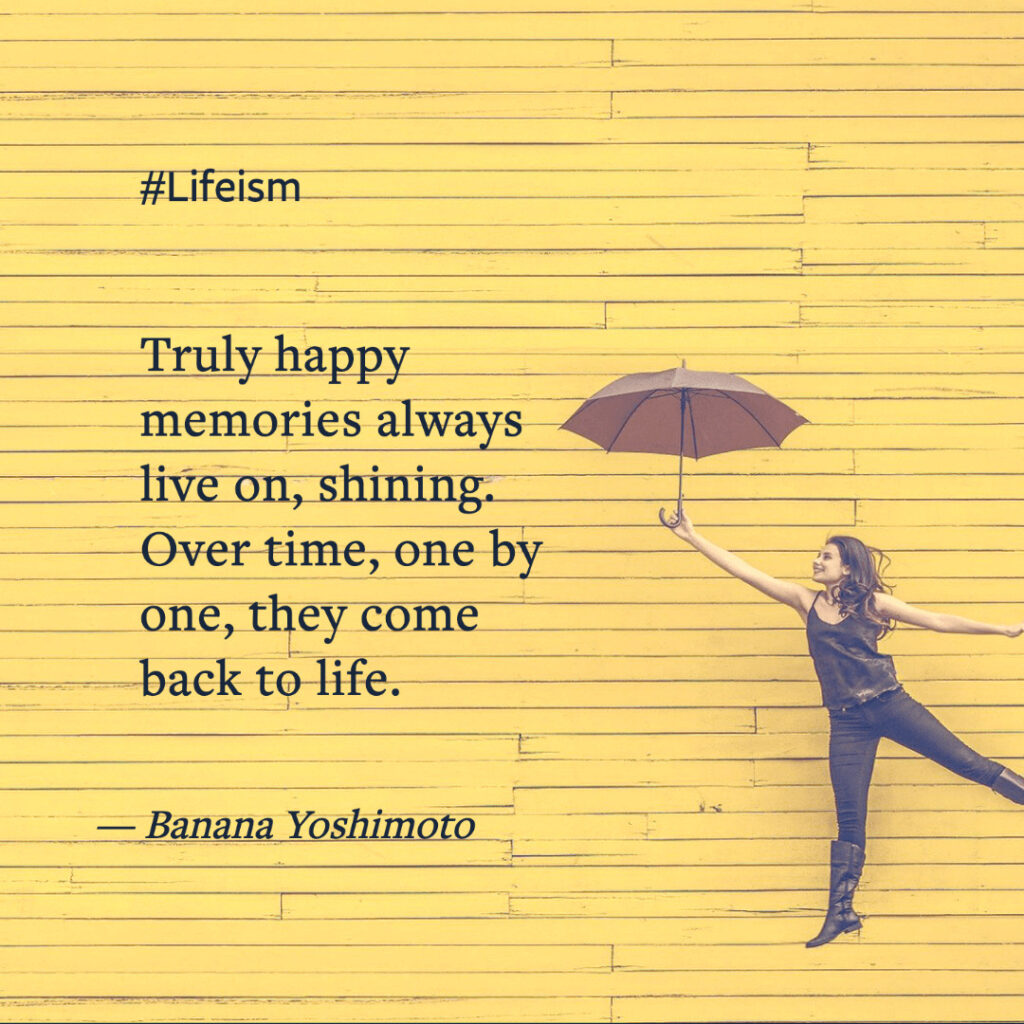
In 2018, the Happiness Research Institute conducted a global study on Happy Memories. The study was conducted across continents, countries, and cities. People of different ages and ethnicities took the survey. And after analyzing thousands of responses, patterns started to emerge. It turns out, that there is a recipe for making happy memories. In this article, we talk through the ingredients. What makes happy memories, well, happy? Broadly speaking, there are 8 ingredients:
"As I sit in Heaven" depicts the sentiments of an individual who has passed yet wishes to converse with those living here.
lifeism.coNovelty and extraordinary
We tend to remember moments that are new, and different from our daily experiences. Memories from our trip, our first kiss, our first job, that skydiving, etc. When we experience something for the first time, and when it is a pleasant experience, we tend to store those experiences as good memories.
Happy memories involve us entirely. We don’t just remember that trip we took because it was an extraordinary experience, but we also remember it because the trip had our full attention. We were cut off from work and the daily grind and dedicated all our attention to the moment. When we are on that first date, we are so involved with our partner that the rest of the world seems to fade away.
Interspersed throughout the article are beautiful memories quotes and making memories captions to give you more context to the article.
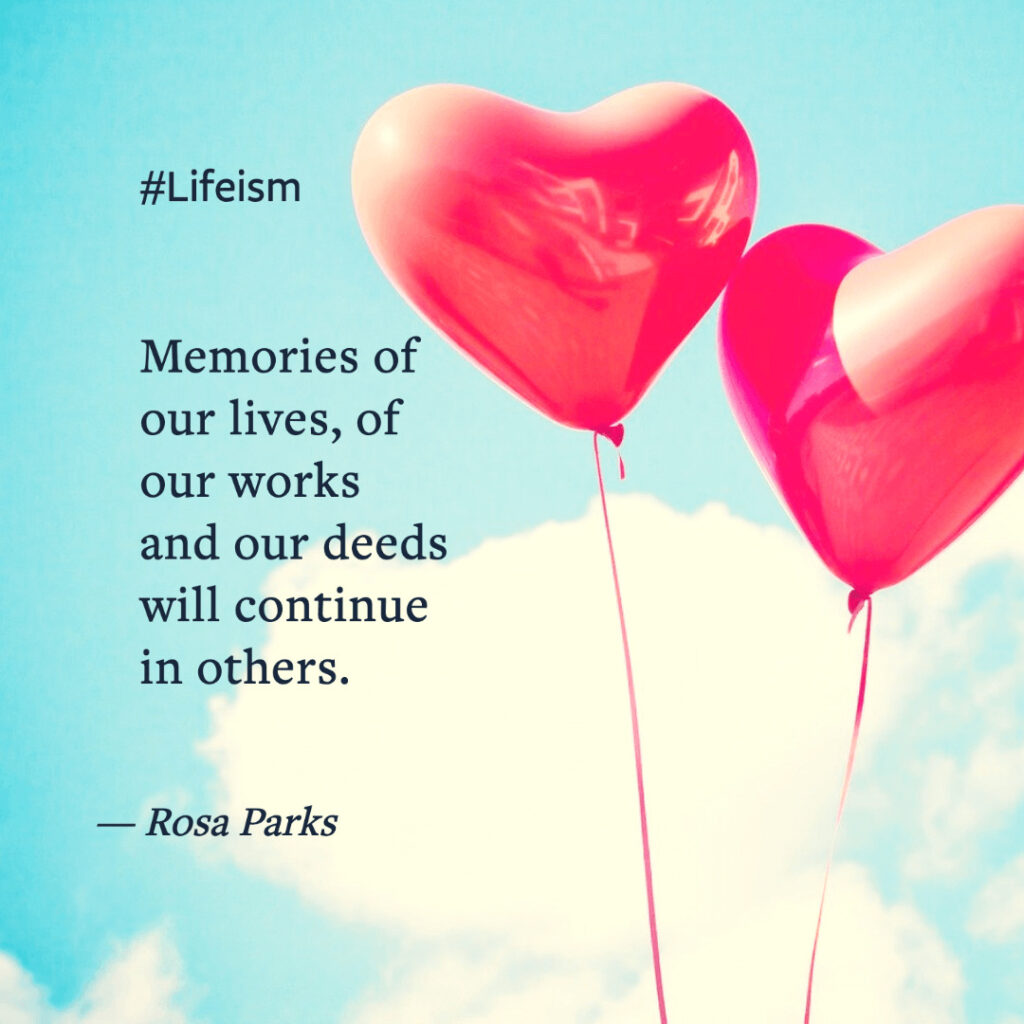
Multisensory
Many experiences that are happy, use more than one of our senses. For instance, memories that center around food often involve our tastebuds, olfactory senses, and our eyes (that ate the delicious food much before you placed it in your mouth). This is one of the many reasons why many of our happy memories are around food. Because it involves multiple senses.
Don't certain songs/music transport us to another time? Does it not bring up memories (good and bad) instantly? All four senses play an important role in forming memories. When more of our senses are involved, our memories tend to be stronger.
Many brands tend to use this trigger to create a memory of the brand. The smell of coffee when we enter Starbucks. The smell when we enter Abercrombie & Finch or even Macys. Brands spend millions to develop a unique smell and then spend even more to make sure we are able to associate it with the brand.
If we want our wonderful memories to stick around for a lifetime, then we need to create experiences that involve more than one sense.
Daffodils or "I wandered lonely as a cloud" is a poem about appreciating the little joys of life. Dive into a lyric meditation on nature and self.
lifeism.coAttention
Take a moment to watch the video below before you proceed further.
This test was created by Daniel Simon and Christopher Chabris in 1999 popularly known as the selective attention test. The correct answer to the question is 15 passes. But more important than that is, did you see the gorilla? The point of the test is to demonstrate that we are selective when it comes to paying attention. So much so, that we miss the gorilla in the video because we are only focused on the players wearing white T-Shirts.
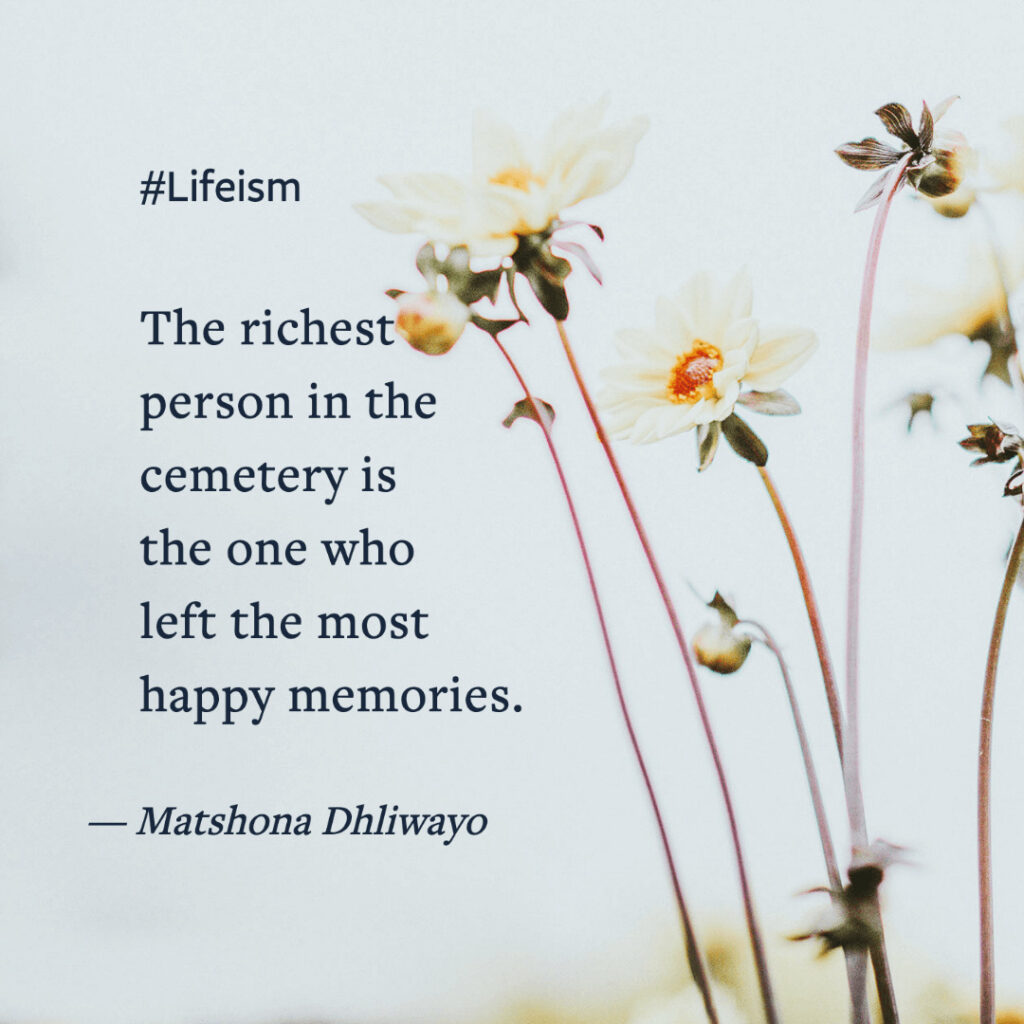
In the same way, when we pay attention to an event in life, and not get distracted by our phones, we tend to experience them more fully and as a result, remember them vividly.
Meaningful
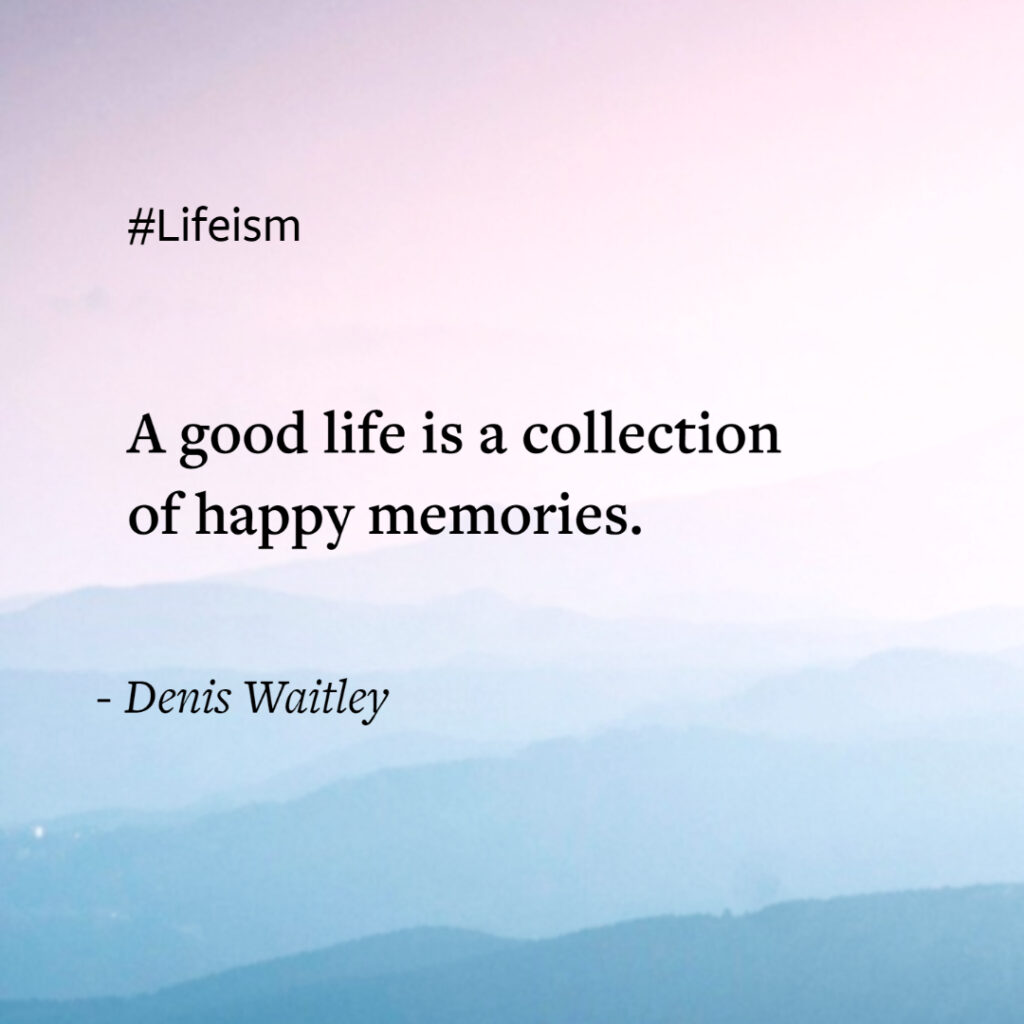
We remember memories that are meaningful to us. Those that are a milestone in our lives. Our marriage, birth of a child, graduation, etc. are all meaningful life events that we usually recall as happy memories.
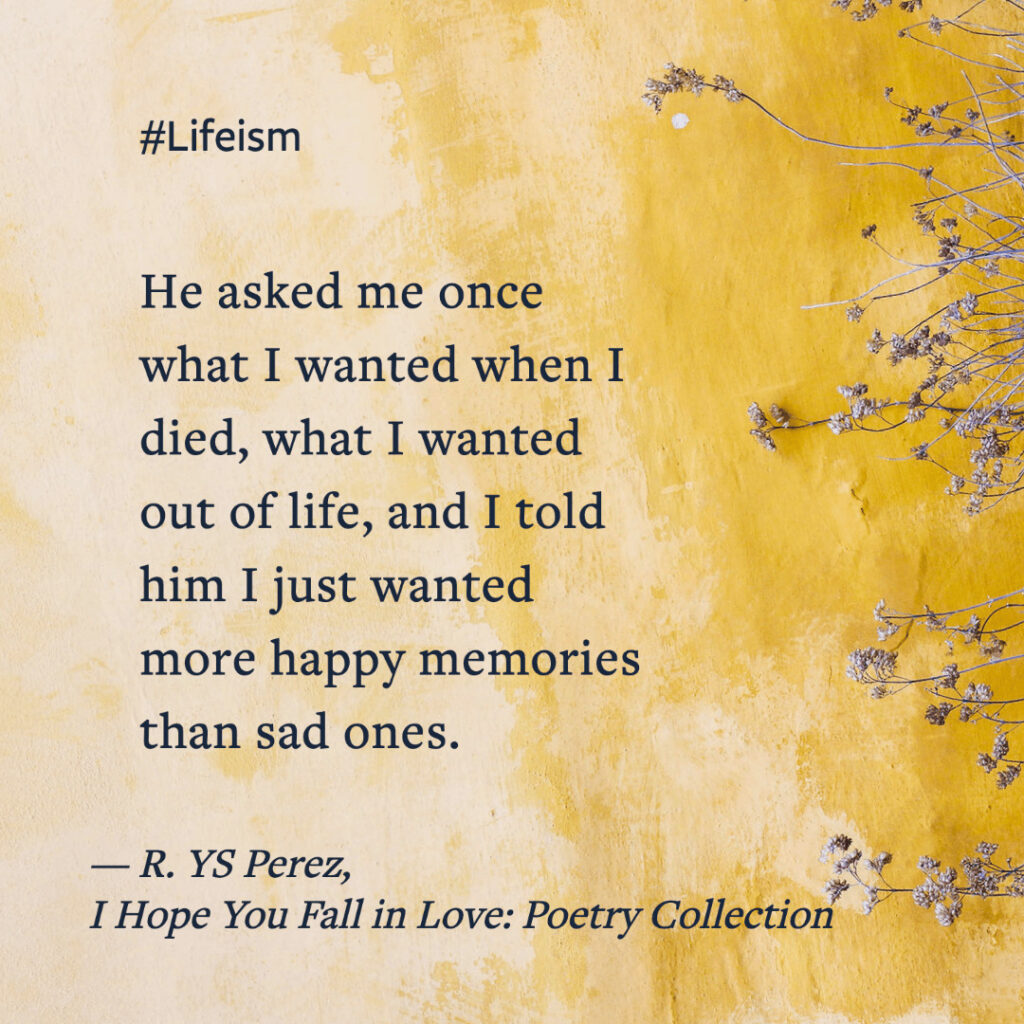
In order to create happy memories, it is important to ensure that we treat big milestones in our lives with the care and attention it deserves. Taking the timet to do something meaningful for the milestones of our loved ones can serve as a great memory to recall in the future.
This Thanksgiving, let's find new and meaningful ways to express gratitude. Here are top 10 ways to show thanks and give back this holiday season.
lifeism.coEmotional
We remember memories that made us feel something. That unexpected proposal made us feel special, the time when the usually unexpressive parent said they were proud or when we fall in love, deeply. Emotions are memory hooks. When we feel something deeply, it etches itself in our long-term memory.
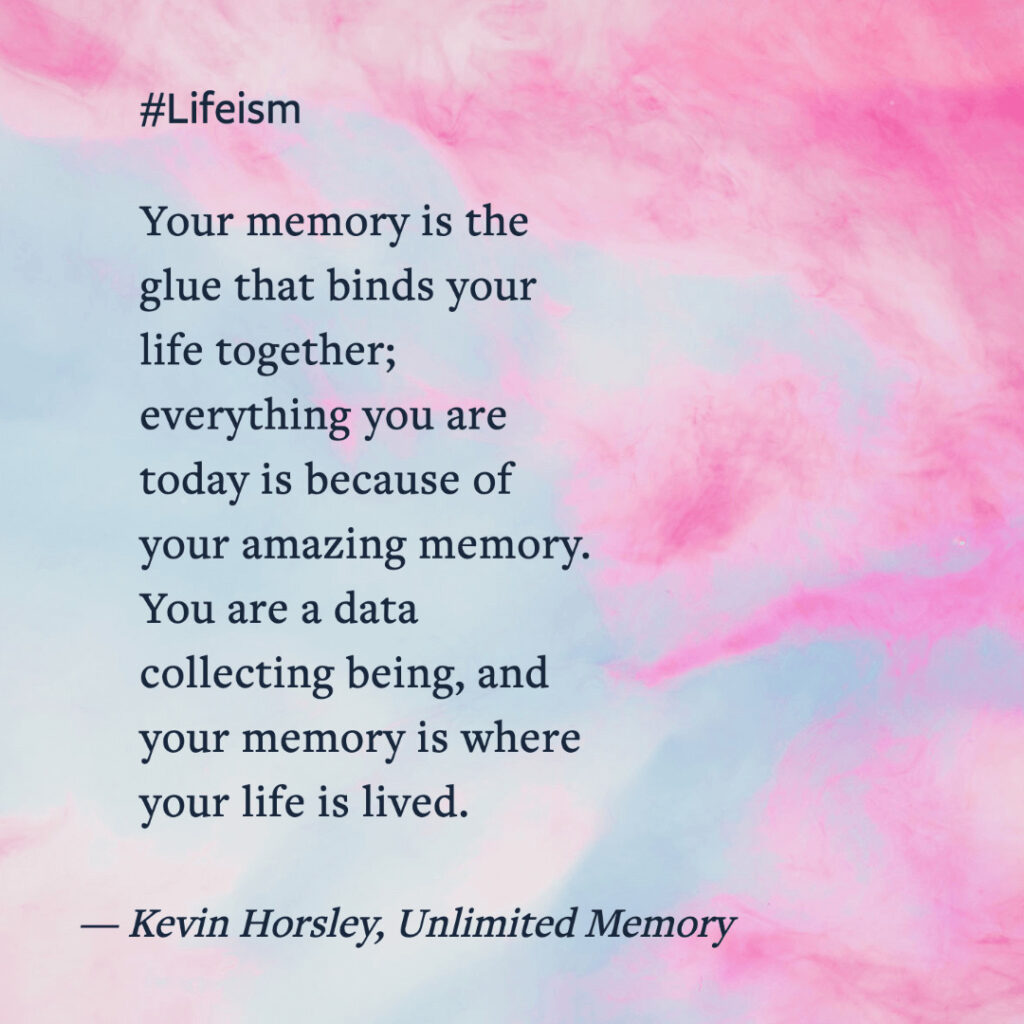
So when we are overcome with feelings, especially the good kind, it is important to take a couple of deep breaths. To take in the experience that is creating such a strong and positive emotion within. So that you can cherish that moment forever.
A soulful curation of romantic love poems by Rupi Kaur that tugs the strings of our hearts. Accompanied by visuals from the queen of #instapoetry herself.
lifeism.coPeak and struggle
We also tend to remember our comebacks as happy memories. The time we struggled and achieved something. When things were not going our way, but we endured. The overcoming of our struggles is often a happy memory we remember for a long time.
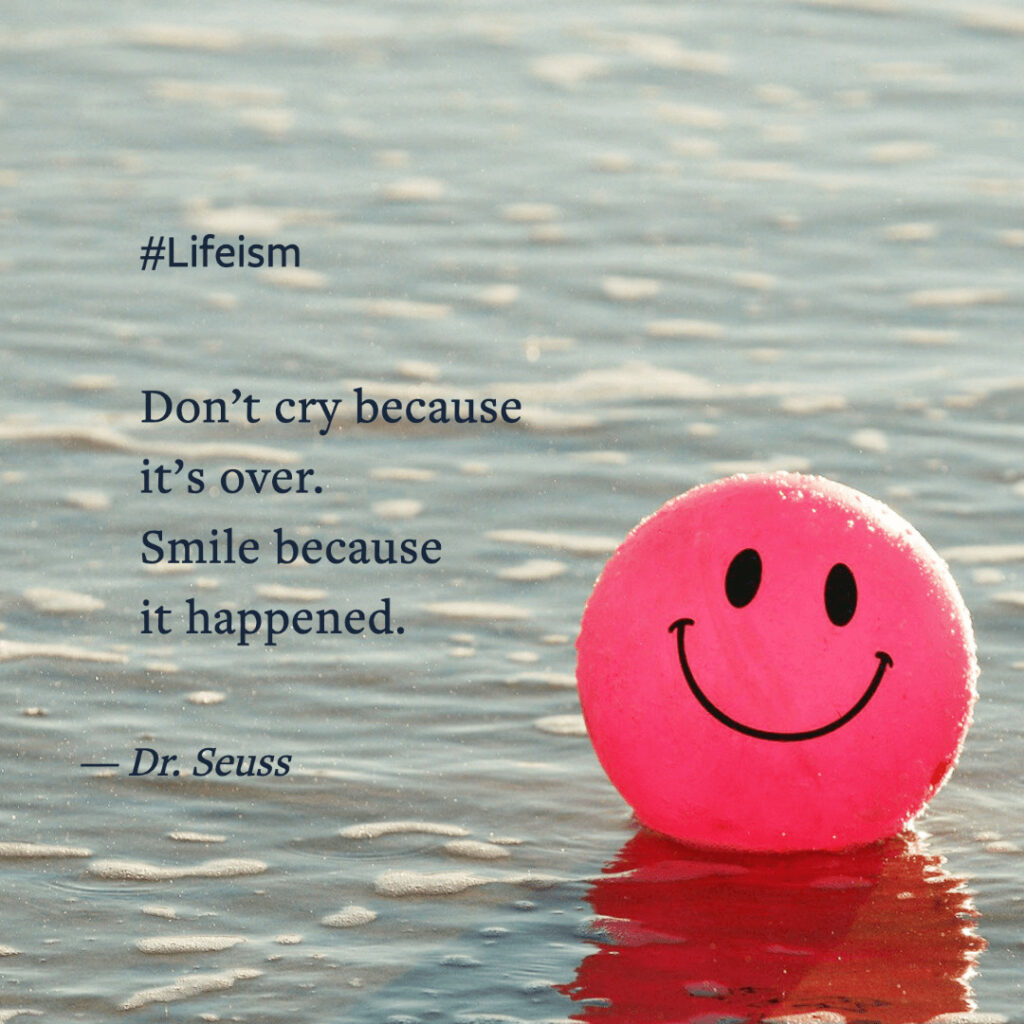
So the next time you are facing something untenable and things in life seem bleak, remember this. Remember that one day you will look back to this time and you will be proud of yourself. Because you got through it all. Despite the hard times, you survived and thrived.
Decode the message sent by the universe through tiny and beautiful monarch butterflies and unlock your destiny.
lifeism.coStorytelling
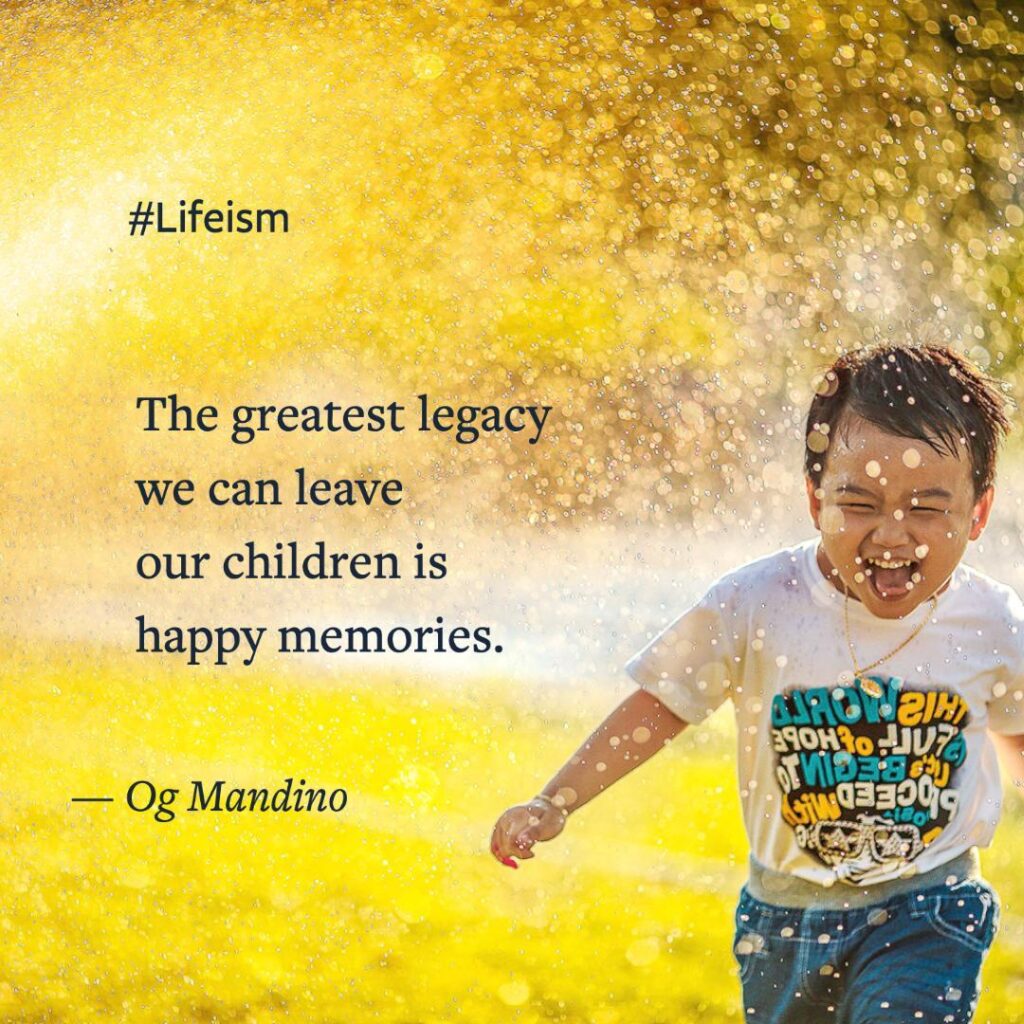
We remember stories. When we experience something unexpected, we tend to remember it fondly. That time when the car broke down and a Rockstar stopped to help us. Experiences that become conversation starters tend to stick with us and keep us warm in cold, winter days of solitude.
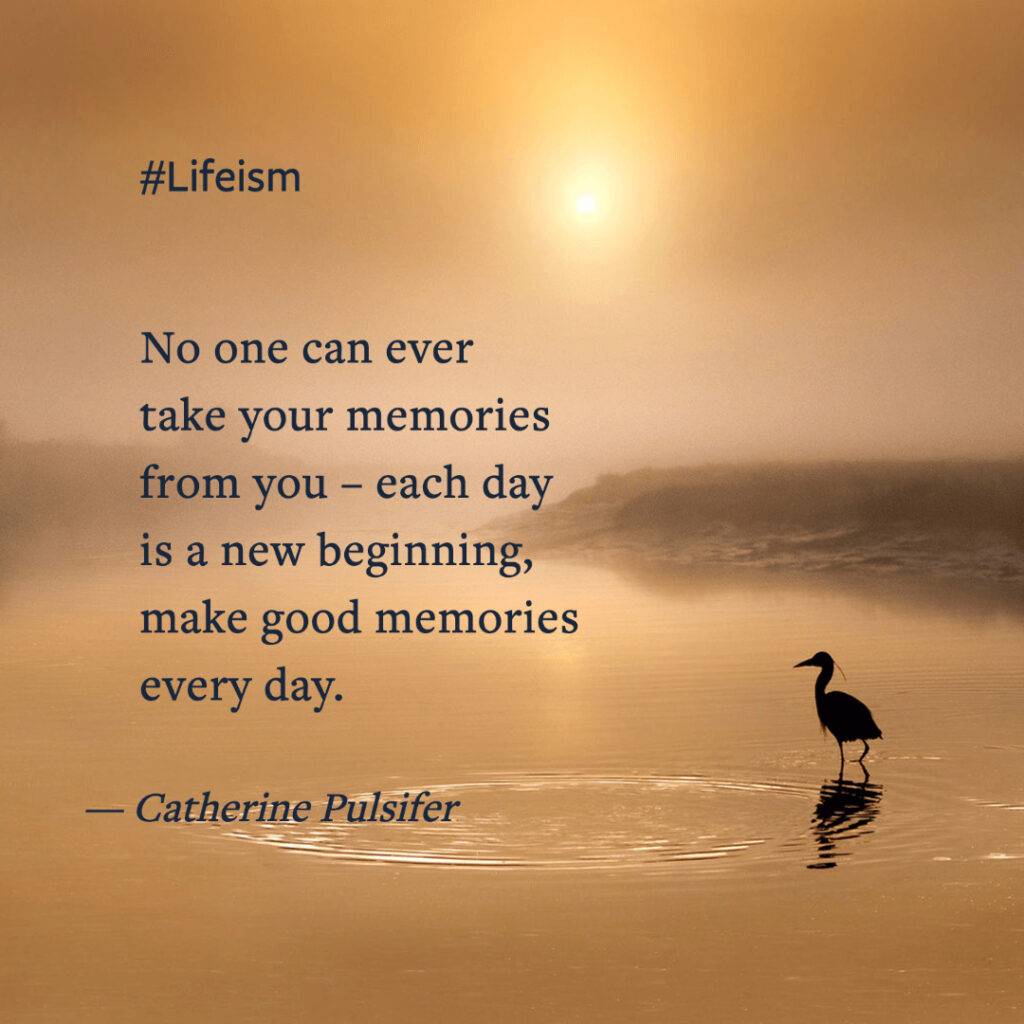
Objects from the Past
What would you save if your house was burning down? Mixtapes, letters from your loved one, photographs of family, or a bottle of alcohol shared with dear friends? Of all the ingredients of happiness, this is the only one that is tactile and physical. The things we save often have happy memories associated with them.
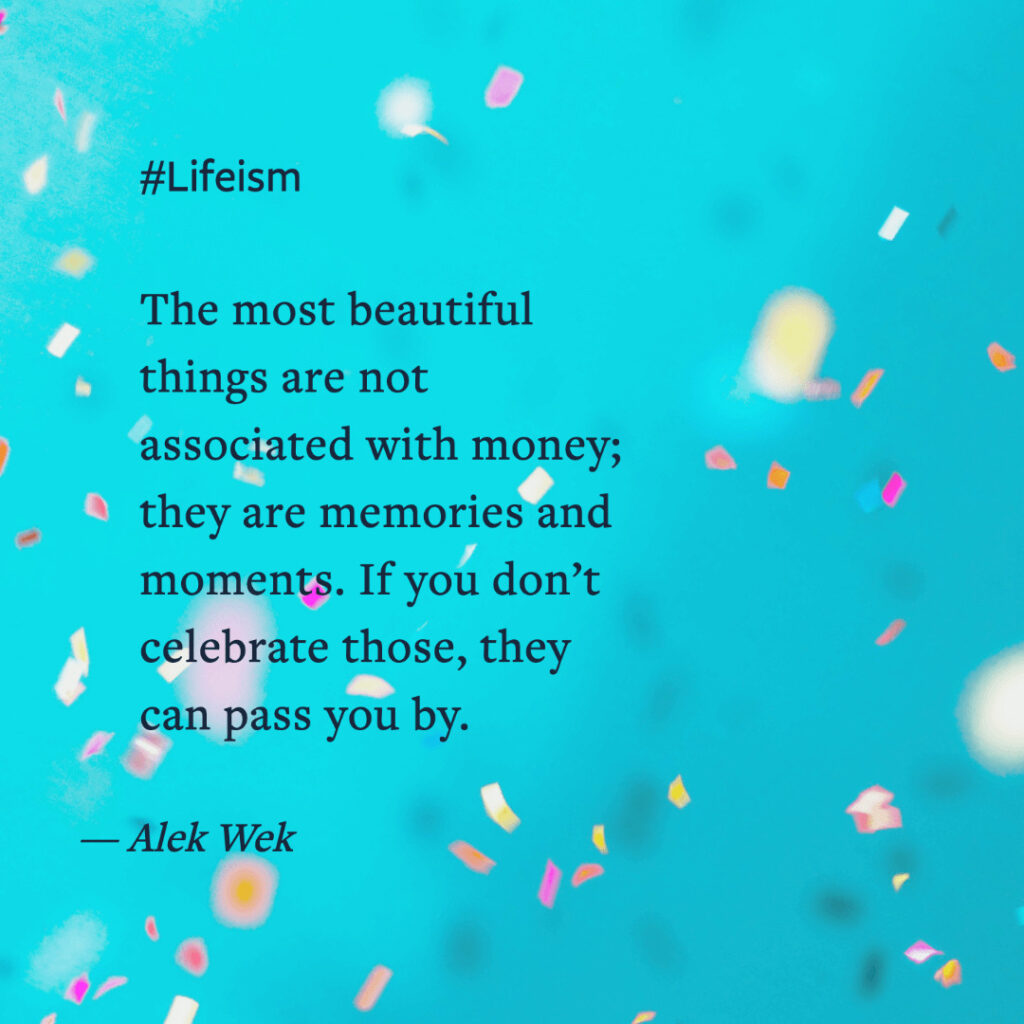
These eight ingredients of happy memories are universal. No matter who you ask, they will have a happy memory that has at least one of these ingredients in it. Now that you know the ingredients, it's time to cook. How are you going to treasure your happy memories? How will you create situations that lead to happy memories in the future?
Tell us your life’s happy memories. What do you remember and why? We'd love to hear from you in the comments.
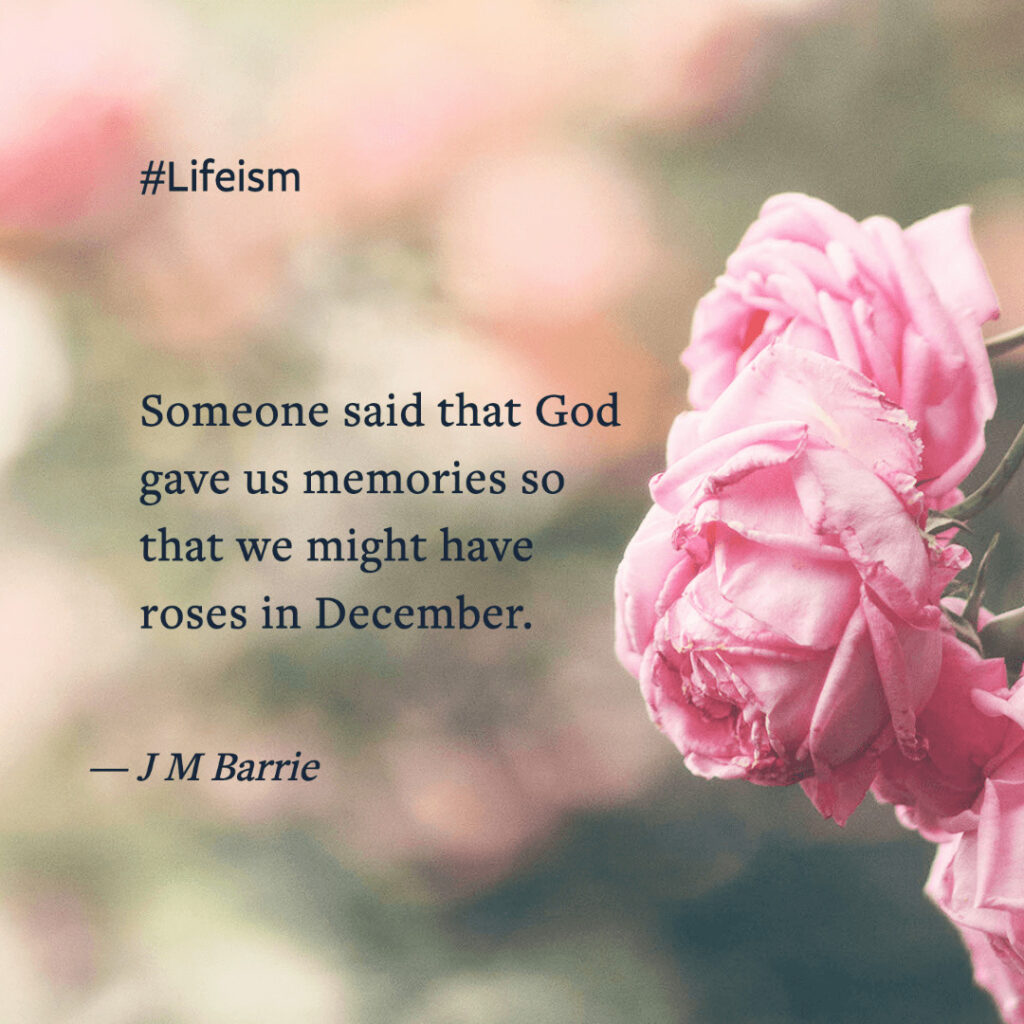
If you liked the ideas in this post and would like to learn more about making happy memories, we highly recommend reading the book, The Art of Making Memories - How to Create and Remember Happy Moments by Meik Wiking. We loved the book. We are sure you will enjoy it too.
Sometimes, reading books like these also brings back good memories meaning its worth investing in reading good books in life as well.
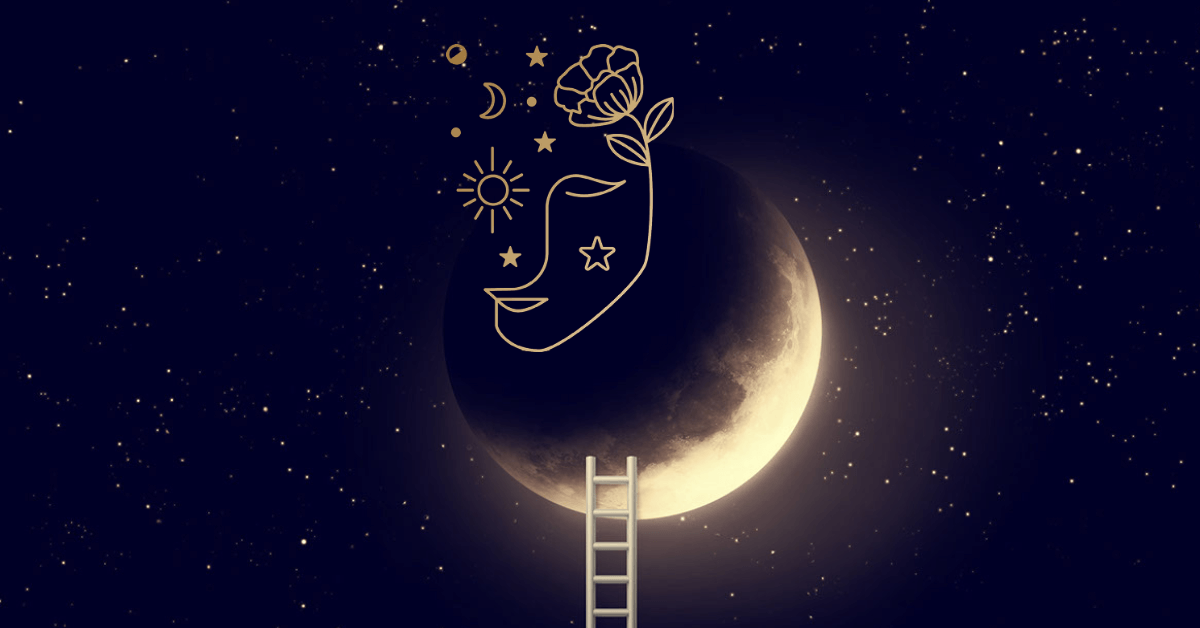












Comments
very interesting to learn about all this, would love to read more related to this
[Comment marked as inappropriate]
nice article maybe i read the book